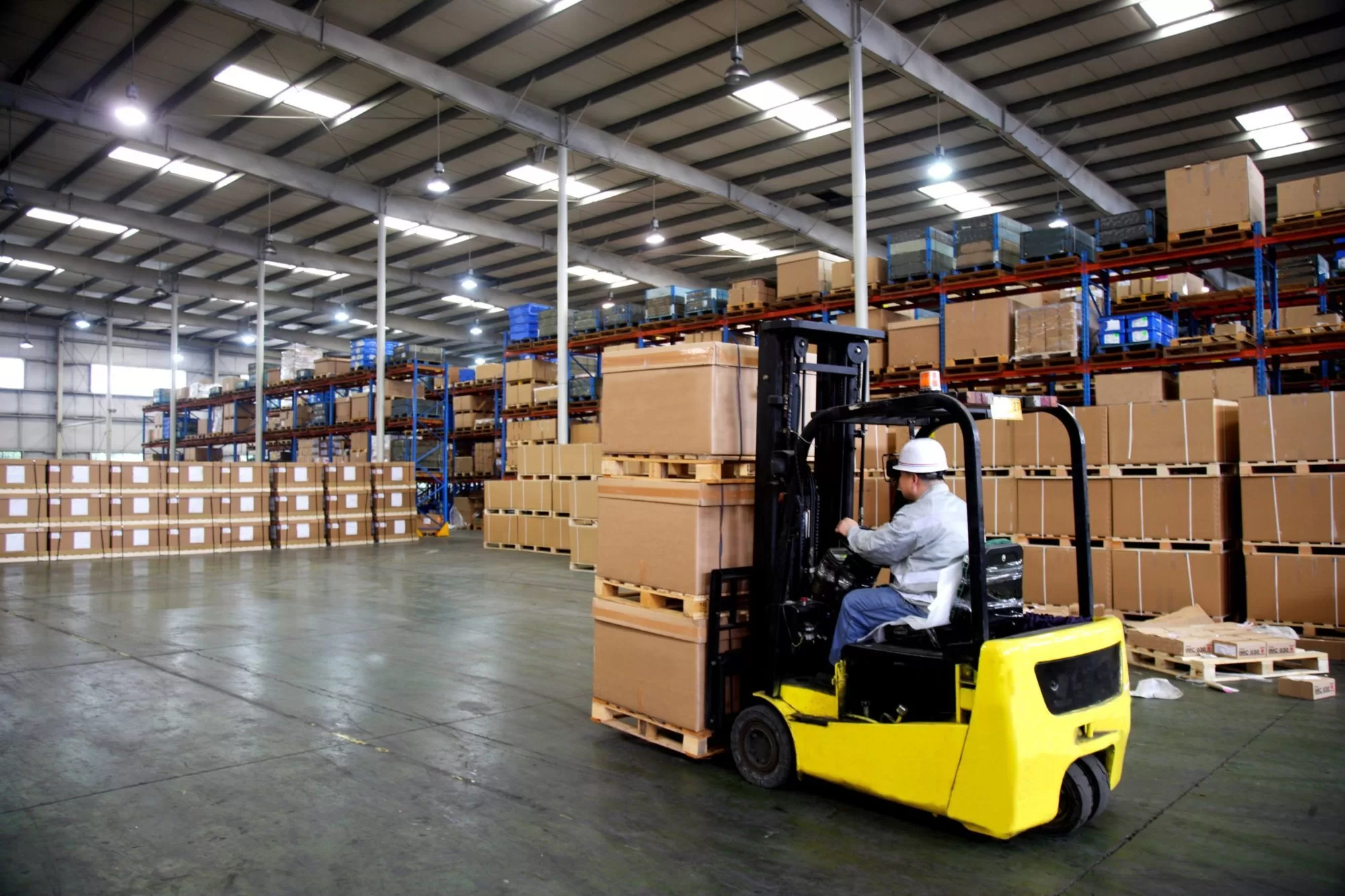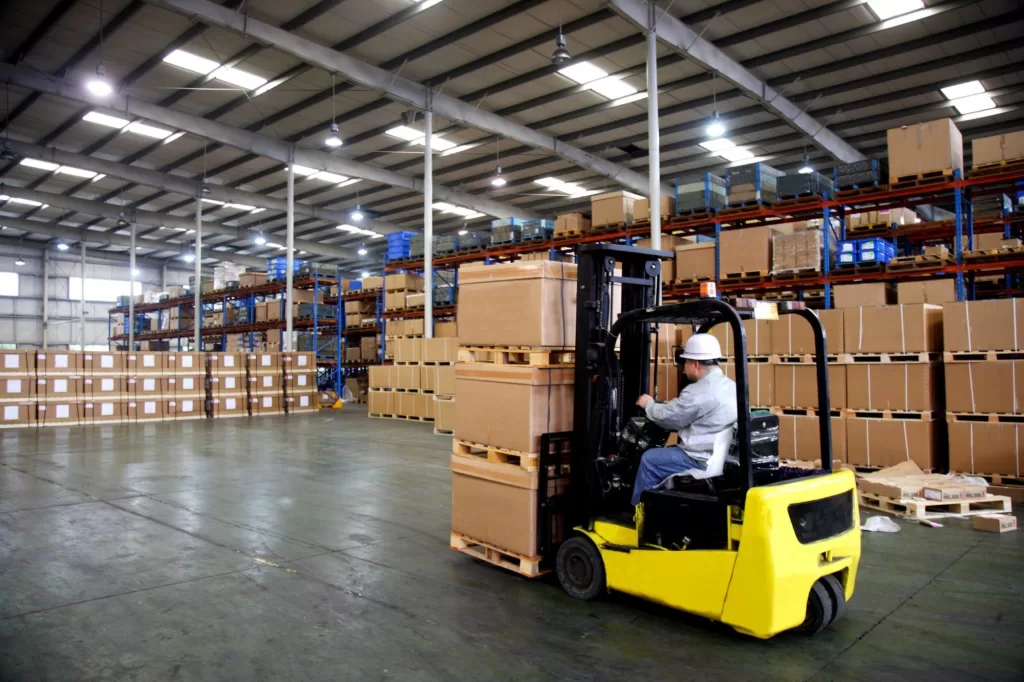
1. Introduction to facility management in warehouse operations
Effective facility management is crucial for smooth warehouse operations and overall business success. With the increasing complexity and size of warehouses, organizations require comprehensive facility management solutions to ensure optimal performance and cost efficiency. Integrated facilities management services have emerged as a key factor in achieving these goals. Top facility management companies in India offer a wide range of services, including property management, housekeeping, and facility maintenance. In this blog, we will explore the key factors for effective facility management in warehouse operations
2. The importance of strategic planning & organization
Effective facility management in warehouse operations requires strategic planning and organization. By having a well-defined plan, warehouse managers can align facility management activities with the overall business objectives and goals. This includes mapping out the necessary resources, developing schedules for maintenance and repairs, and establishing clear communication channels to ensure that all stakeholders are informed and involved.
Moreover, organization plays a crucial role in facility management. Warehouse operations deal with a wide range of activities, such as inventory management, equipment maintenance, and space utilization. By implementing effective organizational systems and processes, facility managers can streamline these operations, minimize downtime, and increase productivity.
Facility management companies in major cities like Mumbai, Bangalore, and others offer expertise in developing strategic plans and organizing warehouse operations. Their professional services can significantly contribute to the smooth functioning of facilities, ensuring optimal performance and cost efficiency.
3. Efficient use of space and resources
Efficient use of space and resources is another key factor for effective facility management in warehouse operations. In a warehouse setting, space is often limited, making it essential to maximize every inch available. Facility managers can achieve this by implementing smart layout designs and utilizing storage systems that optimize space utilization.
Additionally, having a comprehensive understanding of the resources available and their utilization is crucial. This includes not only physical resources like equipment and materials but also human resources. Properly assigning tasks and coordinating workflows can help ensure that resources are used efficiently, preventing wastage and increasing productivity.
Warehouses in cities like Mumbai and Bangalore often face space constraints, making it even more important to prioritize efficient space and resource usage. By employing advanced technologies, such as warehouse management systems and automated inventory tracking, facility managers can optimize operations and minimize inefficiencies.
4. Maintenance and safety protocols
Maintaining a safe and well-maintained warehouse is crucial for efficient facility management. Regular maintenance of equipment, machinery, and infrastructure ensures their smooth functioning and minimizes the risk of breakdowns or accidents. Facility managers should establish a rigorous maintenance schedule, including routine inspections and repairs, to address any potential issues proactively.
In addition to maintenance, implementing robust safety protocols is essential to protect employees and assets. This includes conducting regular safety training programs, enforcing proper usage of personal protective equipment (PPE), and maintaining clear emergency evacuation plans. By prioritizing safety, facility managers not only ensure the well-being of their workforce but also prevent any disruptions to warehouse operations.
Stay tuned for the next section as we delve into the significance of effective communication and collaboration in facility management and how it impacts warehouse operations.
5. Technology integration for improved operations
In today’s digital age, technology plays a significant role in enhancing the efficiency and effectiveness of warehouse operations. Facility managers should consider integrating advanced technologies into their facilities to streamline various processes and achieve optimal productivity levels.
One key technological aspect that can greatly benefit facility management in warehouse operations is the use of warehouse management systems (WMS). These systems provide real-time visibility into inventory levels, order fulfillment, and shipment tracking, allowing for better coordination and timely decision-making. With a WMS in place, facility managers can optimize warehouse layout and storage configurations, improving overall space utilization and reducing unnecessary movements.
Additionally, implementing automated systems such as conveyor belts, robotic pickers, and RFID tracking can significantly boost operational efficiency. These technologies can speed up material handling and inventory control, minimize errors, and increase order accuracy. By reducing manual labor and streamlining processes, facility managers can optimize productivity and minimize costs.
Moreover, it is crucial for facility managers to leverage data analytics and business intelligence tools to gain insights into warehouse operations. Analyzing data on inventory levels, order patterns, and customer demand can help identify trends and optimize stock levels to provide excellent customer service while minimizing storage costs.
In conclusion, integrating advanced technologies into warehouse operations can significantly contribute to effective facility management. By utilizing systems such as WMS, automation, and data analytics, facility managers can enhance productivity, reduce costs, and ensure efficient warehouse operations.
6. Effective communication and collaboration
Effective communication and collaboration are fundamental aspects of facility management in warehouse operations. Clear and efficient communication between facility managers, supervisors, and employees is crucial for ensuring smooth operations and addressing any issues or concerns promptly.
Implementing a communication system that enables real-time communication, such as two-way radios or a messaging platform, can facilitate quick and effective communication between different teams and departments within the facility. This allows for better coordination and timely decision-making, leading to improved productivity and customer satisfaction.
Collaboration is also essential in warehouse operations. Facility managers should foster a collaborative work environment where employees are encouraged to work together and share ideas. This can lead to innovative solutions, improved efficiency, and a positive work culture.
Regular team meetings and brainstorming sessions can help promote collaboration and create opportunities for employees to contribute their insights and expertise. Additionally, establishing cross-functional teams can facilitate collaboration between different departments and ensure a holistic approach to facility management.
7. Continuous improvement and adaptation in facility management
Continuous improvement and adaptation are key factors for effective facility management in warehouse operations. In a dynamic and ever-evolving industry, it is important for facility managers to constantly assess and improve their processes to stay ahead of the competition and meet the changing needs of the business.
Regular evaluation and analysis of operational data can provide valuable insights into areas that need improvement. By identifying bottlenecks, inefficiencies, and areas of waste, facility managers can develop strategies to optimize workflow, reduce costs, and increase overall efficiency.
Adapting to new technologies and trends is also crucial in modern facility management. Automation, robotics, and data analytics have revolutionized warehouse operations, and facility managers who embrace these advancements can gain a competitive edge.
Furthermore, facility managers should actively seek feedback from employees and customers to identify areas for improvement. Engaging in continuous improvement initiatives not only enhances operational effectiveness but also fosters a culture of innovation and growth within the facility.
8. Conclusion emphasizing the impact of effective facility management on warehouse operations
Effective facility management is a critical component of successful warehouse operations. By continuously improving and adapting their processes, facility managers can drive efficiency, reduce costs, and stay ahead of the competition. Regular evaluation and analysis of operational data enable facility managers to identify and address bottlenecks, inefficiencies, and areas of waste, leading to optimized workflows and increased overall efficiency. Embracing new technologies such as automation, robotics, and data analytics is equally important in modern facility management. By actively seeking feedback from employees and customers, facility managers can foster innovation and growth within the facility while enhancing operational effectiveness. Ultimately, effective facility management plays a crucial role in the success and profitability of warehouse operations.
SILA adopts a tech-driven approach, utilizing Robotics and IoT, Automated Compliance Management, and our proprietary technology (SILA Connect) to efficiently manage properties across India. As pioneers in technology within the facility management sector, SILA stands out as one of the best facility management service provider in India.
To delve deeper into our integrated facility management services, click here.
Industries We serve –
Commercial Offices & Buildings | Manufacturing & Heavy Industrial Facilities | Residential Complexes & Townships | Hotels & Campuses | Airports & Malls | IT Parks & Data Centres | Warehousing & Logistics Parks | Banks & Retail
Present in 125 cities –
Ahmedabad | Baroda | Bengaluru | Chennai | Bhubaneswar | Delhi | Gurugram | Noida | Kolkata | Hyderabad | Kochi | Mumbai | Pune & more
Get a free quote today, to reduce your facility cost.
FAQs -
1. What strategies are used to ensure safety in facilities?
Safety protocols, regular safety training for occupants of the space, implementation of proper equipment maintenance schedules, conducting risk assessments, and compliance with safety regulations are some strategies employed to maintain a safe working or living environment.
2. How does Facility Management contribute to sustainability?
FM practices focus on reducing waste generation, optimizing energy consumption, adopting eco-friendly technologies, and implementing recycling programs, thereby contributing to environmental sustainability.
3. What are the benefits of outsourcing Facility Management services?
Outsourcing FM services can provide specialized expertise, cost-effectiveness, access to advanced technology, scalability, and the ability to focus on core business activities while experts manage facility operations.
4. How do you measure the success of Facility Management?
Key performance indicators (KPIs) such as uptime of critical equipment, energy efficiency, maintenance costs, safety records, compliance levels, and overall productivity are often used to measure the success of FM practices.
5. What trends are shaping the future of Facility Management?
Trends like the Internet of Things (IoT) integration, artificial intelligence (AI) for predictive maintenance, sustainable practices, remote monitoring and management, and the adoption of cloud-based solutions are shaping the future landscape of FM.
About SILA -
SILA – A Real Estate platform driven by an entrepreneurial spirit.
Our businesses include Real Estate Services which offer Facility Management, Contracting Solutions and Real Estate Advisory. Our other business is Real Estate Development. We have a diverse client base in various sectors which include large Corporates, Real Estate Funds, Landowners and Developers.
Over the last decade, SILA has scaled efficiently, managing over 150 million square feet of assets, with over 20,000 employees pan India. The platform is backed by
Norwest Venture Partners and Samara Capital Group in our Real Estate Services and Development arms, respectively.
SILA is one of the best facility management service provider in Mumbai, Bengaluru, Delhi, Chennai, Hyderabad, Pune & more.





















